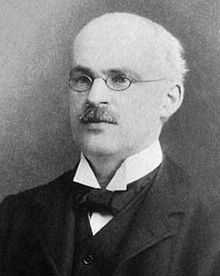Rawlinson Road


Rawlinson Road is a residential road in North Oxford, England.[1]
Location
At the western end of the road is a junction with Woodstock Road (A4144) and at the eastern end is a junction with Banbury Road (A4165), the two major arterial roads out of Oxford to the north. Opposite slightly to the south at the western end is Polstead Road. Opposite slightly to the north at the eastern end is Linton Road. Parallel to the south is St Margaret's Road and to the north is Staverton Road.
Just to the south at 90 Woodstock Road is the Junior School (nursery to year 1) of the Oxford High School[2] (formerly the Squirrel School[3]). Just to the north at 111 Banbury Road is the Swan Building, the main teaching centre for the Sixth Form of d'Overbroeck's College. Balliol College, one of the colleges of Oxford University, operates a day nursery located in Rawlinson Road.[4]
History and residents
The area where Rawlinson Road is located was originally owned by St John's College, Oxford. The road was named after Dr Richard Rawlinson FRS (1690–1755), an antiquarian and divine.[5] Houses in the road were first leased by the college between 1888 and 1893.[1] They were designed by the architects Harry Wilkinson Moore and Herbert Quinton. The houses are in a late Victorian style and of brick construction.[6]
The Irish-born mathematician John Edward Campbell (1862–1924) lived at 14 Rawlinson Road.[7] Harriet Shaw Weaver (1876–1961), political activist and magazine editor, lived at 4 Rawlinson Road.[8] The Hungarian-born member of the House of Lords and economist Thomas Balogh, Baron Balogh (1905–1985) lived in Rawlinson Road with his family.[9]
Derbyshire House Hotel was located at 18 Rawlinson Road.[10][11]
The poet John Betjeman (1906–1984) wrote of Rawlinson Road:[12]
Too much, too many! so fetch the doctor,
This dress has grown such a heavier load
Since Jack was only a Junior Proctor,
And rents were lower in Rawlinson Road.
References
- ↑ 1.0 1.1 Hinchcliffe, Tanis (1992). North Oxford. New Haven & London: Yale University Press. pp. 85, 126, 212, 235–236. ISBN 0-14-071045-0.
- ↑ "How To Find Us". Oxford High School. Retrieved 31 August 2012.
- ↑ Rescher, Nicholas (1997). Instructive Journey: An Essay in Autobiography. University Press of America. p. 193. ISBN 978-0761805861.
- ↑ "Nursery". Balliol College, Oxford. Retrieved 31 August 2012.
- ↑ Symonds, Ann Spokes (1997). "Buildings and Gardens". The Changing Faces of North Oxford. Book One. Robert Boyd Publications. p. 13. ISBN 1-899536-25-6.
- ↑ Sherwood, Jennifer; Pevsner, Nikolaus (1974). The Buildings of England: Oxfordshire. Penguin Books. p. 321. ISBN 0-14-071045-0.
- ↑ Year-book of the Royal Society of London. Royal Society / Elibron.com. 1916. p. 9. ISBN 978-0543925404.
- ↑ Beach, Sylvia; Fitch, Noėl Riley (2011). Walsh, Keri, ed. The Letters of Sylvia Beach. Columbia University Press. p. 256. ISBN 978-0231145374.
- ↑ Morris, June (2007). The Life And Times of Thomas Balogh: A Macaw Among Mandarins. Sussex Academic Press. p. 46. ISBN 978-1845191535.
- ↑ "Rawlinson Road". Kelly's Directory of Oxford (68th ed.). Kelly's Directories. 1976. p. 429.
- ↑ "Derbyshire House". The New Yorker 37 (42). 2 December 1961. p. 195.
- ↑ Gervais, David (1993). Literary Englands: Versions of 'Englishness' in Modern Writing. Cambridge University Press. p. 199. ISBN 9780521443388.